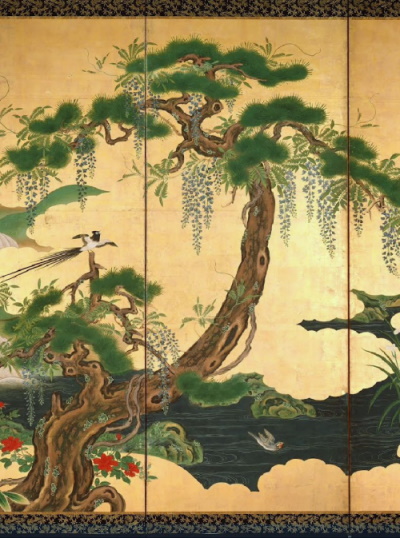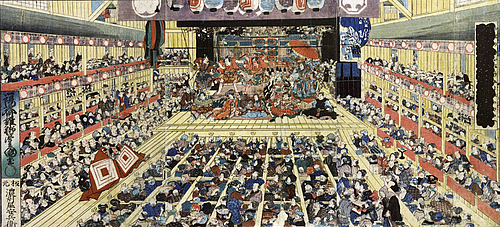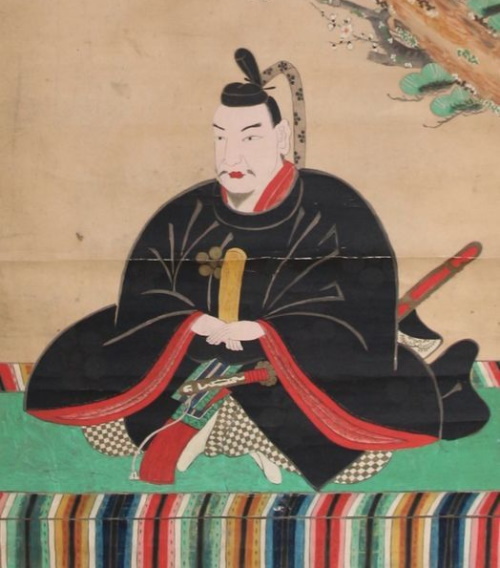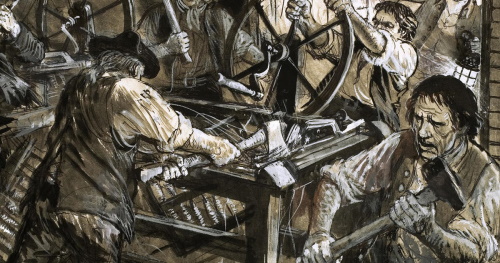Mononobe Shogunate: Its culture, politics and people
Clothing
For commoners, clothing is usually made of linen or hemp while the upper class uses silk. All of these are made in the Shogunate and the fabric industry that has grown in recent years has in the Empire. Most maintain their tradition dress which is rather complex but better explained in much greater detail in this piece by a local historian.
The Yoriki Class is known to wear its armor in public often as a means of status as well.

Manners and Etiquette.
The traditionalist nature of society has led to a rigid form of etiquette that is expected to be followed at all times. At the table, it is expected for you to pour everyone else's drink and then someone else will pour your drink for you, that you should sit at the table in Saiza, say a prayer before the meal, not eating with fingers, and not eating until everyone else started. Take off your shoes when you enter a house. In public, bowing before nobles those of higher standing that you, is the standard custom. You must wait till the higher-class person passes by to stop bowing. For business, partners bow and shake each other's hands.
Speech should not be direct as that is seen as rude, but instead should be subtle. Pointing fingers is seen as threatening too. The use of honorifics is essential as well unless you are with close friends.
Entertainment
There are a few forms of entertainment that the Shogunate's people participate in. The entertainment is split between the lawful kami and the chaotic kami as well. Entertainment in this context is part of the religion with the lawful Kami worshippers' practices like gardening, painting, writing, thinking games and craft making being common; while the Chaotic Kami are worshipped by their followers through gambling, pleasure districts, and acts of chaos.

One commonly shared aspect is that of theatres, which share plays that represent both sides equally and show their unity through them. Festivals are also common.

Since commoners owning weapons is forbidden by law, the hand-to-hand martial arts is a rather common form of entertainment, while the nobles learn both hand to hand and weapon proficiency.
Death and Funeral Rites
Funerals are a well-respected tradition that are to represent the passing of a life from the mortal realm to the heavenly realm. The body is burnt to ensure this process is done, and the funeral itself consists of prayers for their passing to the heavenly realm to join the Kami and lamentations on the now dead. The Urns containing the ashes are placed into the ground and a cherry blossom tree is planted atop them, representing the cycle of life.
Notable Minority Groups
The Shogunate has several minority groups that reside within its borders that are of particular note. Expatriates from Pomerania, (the former) Margraviat du Rosaire, Selenium, Petra, Mujigae, and /warkop/ are all present in the nation, which has always shown acceptance to those who they consider to be ototo to them. The most notable of these are the Pétales, the former inhabitants of the Margaviat du Rosaire who migrated to the Shogunate not long after the Luxiemite Revolution. Pétales, along with Pomeranians, control much of the financial sector and many merchants come from either Pétales or Pomeranian stock, much to the anger of some increasingly xenophobic parts of society.
Social classes and Politics
The society is a feudal one, with peasants at the bottom, tradesmen next, the warrior class next, followed by the bureaucrats, the merchants and then the nobility themselves. However, the class system is not a caste, as the shogunate has a long tradition of education that has expanded in recent years for many peasants to be able to get some form of basic education as part of the Shogunates initiative for future development of a meritocratic system that aims to combine the traditional classes with modern needs.
This is reflected in the Shogunate's politics and the factions. The main factions include the:
Dento Shugisha which consist of traditionalist nobles, Officials, Moralists, Priests and Bureaucrats who are concerned with protecting the traditional rights of the state to prevent its morality from declining due to progress. Ludditism (called Sono Banjin), hard core traditionalism, isolationism, Agrarianism, and moralism are key principles in this faction.
Axela Risto consisting of Progressive Nobles, Merchants, Bankers, and the middle class. This faction wants to protect the some of the rights of the nobles, but also wants them to adapt to the current time as well. Industrialization, Urbanism, expansionism, trade and mass education are key parts of their platform. Ending the attachment to land of peasants is a key pillar as well.
Kaigun Habatsu is a unique faction in that it is dominated by the Imperial Navy and does not take a side when it comes to either of the two factions. Rather, the Navy is a combination of both of them, wanting most of what the Axela Risto faction want but unlike them, is much more moralist and places great emphasis on the traditional rites so long as they do not interfere with the navy. Many see the Kaigun Habatsu as the moderate faction between the two extremes because it adopts parts of both of their platforms. Indeed, the navy has built their own class within society itself that does not fit the traditional mold.
As of now, the Axela Risto and Kaigun Habatsu dominate the politics and diplomacy of the Empire, which leads to much division in diplomatic encounters because while they agree on a lot, they do not agree on how things should be conducted. The latter wants honor to take place over practically as honor is seen as the lifeblood of the Shogunate while the Axela Risto do not care for principles in that aspect, as they see it as impeding acceleration of society.

The current Shogun, Mononobe Tsunayoshi, doesn't lean personally towards any of these factions, and his weak rule has allowed the factions to dominate politics instead of him. Decisions at court are usually made by whomever is the most powerful at the time, and the Shogun signs off on them. He is more concerned with gardening, and writing poetry than acting as his real role, which is commander in chief of the army and navy.
Rising problems
Events in recent years have made society increasingly unstable. The rise of the two trade companies, the K.A.G. and C.I.O. have brought great amounts of wealth back to the Shogunate but have also led to growing class tensions, increasing unrest amongst the traditionalists, the erosion of traditional values, and decadence amongst the elite and wealthy.
Foreign investors and expatriates are overrepresented within the middle class. Many companies also fall under Banzoku or Barbarians as they are increasingly coming to be known by the more radical wings of the Traditionalist faction. Bankers are particularly despised, as they are seen as the root of the increasing vice and sin within the society. For the radical traditionalist, they are not only being marginalized and driven into extinction personally, but the society around them is as well.
It's not only the landholding traditionalists that feel this way either. Many peasants are seeing their way of living uprooted by the advancement of technology. Most of the peasantry still holds the traditional values of the Empire to be sacred, and just like the traditionalists, see the society that their ancestors toiled under with pride being eroded by corruption, vice, and greed. A recent uprising within Chikuma, where the peasants and artisans destroyed the infernal machines of a textile mill and torched hundreds of bales of cotton have shown that the wheels of progress are not being received well by society.

There have also been some acts of terrorism in response as well, with one notable case of a wealthy merchant being killed in Mito by a foreign agent that likely has ties to the Traditionalists. There is a real call for at this point by many for the army to be reformed from its feudal nature into a more professional force that will be able to police better and prevent the growing violence from boiling over. The Shogun, who personally leans towards the traditionalists, is hesitant for such as measure but mercenaries are increasingly being used by companies to protect their possessions from the rising tension which may boil over.
If not keep under control, the Shogunate faces real peril. The decadence and growing corrupt is decaying the values that their society is based upon, yet the wealth keeps coming in. A middle ground must be reached by a strong Shogun in the near future, who can bring balance to the realm. There are also even talks of the return of Imperial Power to the domain by some men under the future Emperor, Prince Yasuhito, who will likely take the throne shortly. Whether it be through Imperial Restoration or a strong Shogun, action must be taken soon lest East Anykarian society fall into civil wars and revolution.